Insights from RCM 2025 & AMCEN-20
We are glad to have attended the Regional Consultative Meeting (RCM) of the UNEP Major Groups and Stakeholders, Africa and the 20th Ordinary Session of the African Ministerial Conference on the Environment (AMCEN-20) in July alongside professionals, youth and organisations in the environment sector. Samwel Mdoe, Ecorating Officer, Natural & Protected Areas, represented the organisation in the UNEP sessions.
Insights from the Regional Consultative Meeting 2025(RCM)
The Regional Consultative Meeting took in a hybrid format from 10th-13th July 2025 at CIFOR-ICRAF and UNON offices from 10th to 13th July 2025. The three-day meeting provided an expert and dialogue platform for UNEP and other actors within the environmental sector to prepare inputs for the 20th Ordinary Session of the African Ministerial Conference on the Environment (AMCEN-20). The meeting was officially opened with a keynote address delivered by Dr. Rose Mwebaza, Director and Representative. In her remarks, she noted that Africa is not defined by crisis, but a continent rich in offering community-driven and science-based solutions, and deeply rooted in resilience.
The first day of the RCM was designated to celebrate a Youth Day while spotlighting African young people’s roles as key partners driving Africa’s environmental and development agenda. It was categorised into 4 priority areas for RCM/AMCEN;
1. Biodiversity Loss, Land Degradation, Desertification and Drought
2. Plastics Pollution (INC5.2 for a Global Plastics Treaty) and Mercury Pollution (COP-6 Minamata)
3. UNEA 7 Theme is “Advancing sustainable solutions for a resilient planet
4. Climate Change and Resilient Development
Youth called on AMCEN for the development of a Youth Charter to be considered at the next AMCEN session, and to be aligned with the African Union Youth Charter, to promote intergenerational equity, institutionalise youth participation within AMCEN processes, and support the inclusion of youth delegates in national delegations.
RCM Thematic Groups Discussions and RCM Statement Drafting Ahead Of AMCEN-20 And UNEA-7
The discussions focused on;
- Environmental and climate justice and the road to COP30
- Pollution, waste, and chemicals management
- Environmental rights and legal protection
- Biodiversity and multilateral environmental agreements
- AMCEN’s 2025–2027 strategy
- Africa’s unified positions in global negotiations
Participants who joined the Bilateral talks with UNEP and African Union
- A series of side events was organised to address and offer solutions to some of Africa’s most urgent environmental issues;
- Ending Open Burning of Waste – Stakeholders discussed the Regional Roadmap and AMCEN Decision 18.1, with real-life examples from Kisumu and waste pickers calling for dignity, alternatives, and enforcement.
- Promoting Environmental Rights – Experts and civil society explored how Africa can advance stronger legal and governance frameworks for environmental justice.
- One Continent, One Voice – the session focused on regional cooperation and the establishment of legal frameworks to ensure that environmental rights across the continent are defended. Kenya’s Permanent Representative to UNON & UNEP, Hon. Ababu Namwamba, stressed the importance of building strong institutions and constitutional frameworks to deliver environmental rights as a lived reality.
- Sustainable Cooling for Extreme Heat Adaptation – Stakeholders provided some of the solutions that can be implemented as a way of ensuring resilient cooling systems in cities, cold chains, and protecting the communities which are vulnerable to the rising heat threats.
- Chemicals and MEAs – the delegates and stakeholders discuss how to strengthen Africa’s coordination on multilateral environmental agreements.
Insights from the African Ministerial Conference on the Environment (AMCEN-20)
The event took place from the 14th to 16th July at the UNEP headquarters in Nairobi, Kenya, under the theme “Four Decades of Environmental Action in Africa: Reflecting on the Past and Imagining the Future.”
The ministerial segment focused on ministerial policy dialogues to offer opportunities for the review of the critical, relevant, and innovative pathways through different pillars, namely;
- Environment and Climate-resilient Financing
- Leveraging the G20 Environmental Priorities
- Digital Technologies and Artificial Intelligence for Sustainability; and
- Critical Minerals and Energy Transition.
Paris Agreement+10: A Decade of Climate Action and the Road Ahead
The year 2025 marks the 10th anniversary of the adoption of the Paris Agreement, a landmark global accord that has shaped international climate policy and action. Over the past decade, countries have made significant strides in implementing their Nationally Determined Contributions (NDCs), enhancing climate resilience, and transitioning toward low-carbon development pathways. However, the global community continues to face mounting challenges, including rising emissions, climate-induced disasters, and the need for scaled-up finance and technology transfer. Africa, while contributing the least to global greenhouse gas emissions, remains disproportionately affected by climate change. The continent’s leadership and innovation in adaptation, mitigation, and climate governance are critical to achieving the goals of the Paris Agreement and ensuring a just transition.
The African Union’s Continental Circular Economy Action Plan (CEAP) for Africa 2024-2034 was launched under the theme, “Accelerating Africa’s Transition to a Circular Economy” by the African Union Commission in collaboration with the European Union, United Nations Environment Programme (UNEP), United Nations Economic Commission for Africa (UNECA), United Nations Development Programme (UNDP) and African Circular Economy Alliance (ACEA), and other partners.
During the special High-Level Session of the AMCEN@40, where achievements of the AMCEN since 1985 were highlighted and the journey to “The AMCEN We Want in 2063,” as envisioned at its 40th anniversary, were presented, African ministers for the environment and high-level representatives, together with the representatives of international organisations, partners and other stakeholders,
• Recalled resolution 1/1 on environmental cooperation in Africa adopted by the African Ministerial Conference on Environment in December 1985,
• Recognised the mounting environmental challenges, including climate change, extreme events, environmental degradation, biodiversity and ecosystems loss, deforestation, desertification, pollution, poverty, and other crises that are undermining our ability to effectively respond to environmental challenges, threatening our economies, and the livelihoods of millions of people,
• Reaffirmed their collective and common objectives in enhancing and promoting sustainable environment management, and restoring degraded land and ecosystems, ensuring sound chemicals and waste management, as well as reducing pollution for the benefit of present and future generations, contributing to the socio-economic transformation of Africa.
• Announced a renewed commitment to a resilient and sustainable future for our continent and the rest of the world, by;
- Declaring their intention to enter the next chapter of the legacy of the African Ministerial Conference on the Environment, serving as a beacon of our commitment to fostering an environmentally resilient, sustainable, and equitable Africa.
- Pledging to collectively rise to the opportunities and challenges ahead, forging a path that honours our past while ensuring a better future for generations to come.
- Committing to play a leading role in safeguarding our natural capital, prioritising sustainable management practices that balance economic development with environmental conservation, recognising the intrinsic values of the natural capital and its role in sustaining our socio-economic and cultural heritage.
- Committing to address the mounting environmental challenges, including climate change, environmental degradation, drought, biodiversity and ecosystems loss, deforestation, desertification, public health risks, land, air, and water pollution, poverty, and other threats that undermine our sustainable development goals and threaten the lives and livelihoods of millions.

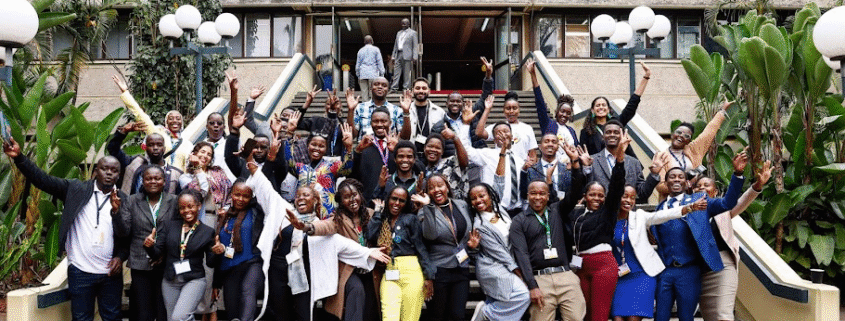
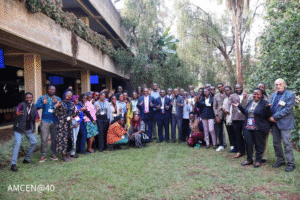
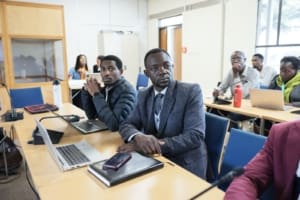
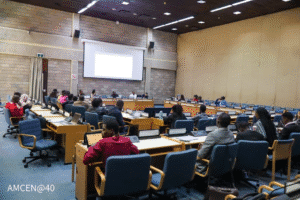
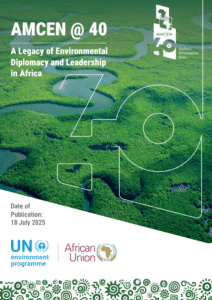

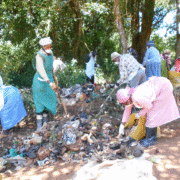



Leave a Reply
Want to join the discussion?Feel free to contribute!